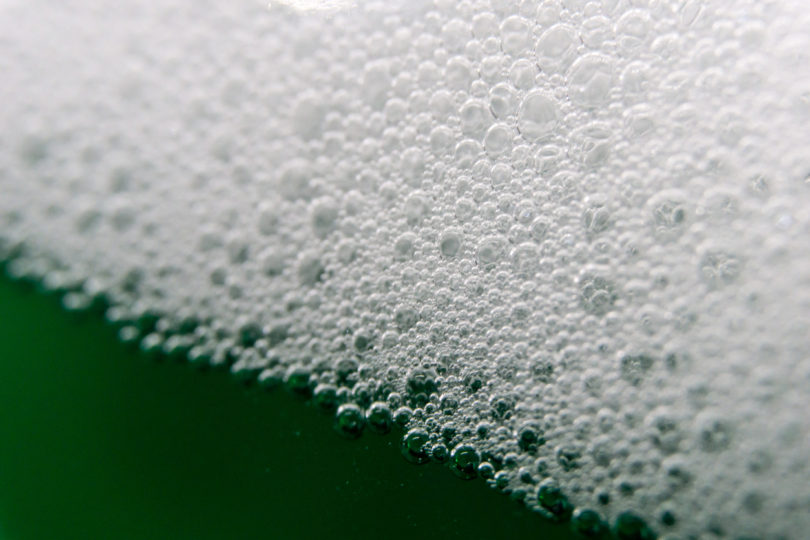When returning from a morning jog, most people shower and perhaps brush their teeth and rinse with a bit of Listerine. But while one of these post-workout routines might make the dentist happy, it could undo all the blood pressure-lowering benefits of exercise.
According to a new research study at the University of Plymouth in the United Kingdom, using antibacterial mouthwash within two hours after exercising is far from beneficial. The scientists recruited 23 healthy adults to run on a treadmill for 30 minutes, then asked them to rinse their mouths with an antibacterial mouthwash or a mint-flavored water placebo (they didn’t know which one). When the researchers measured the runners’ blood pressure after two hours, they were surprised to find that systolic blood pressure had increased in the antibacterial mouthwash group.
“Systolic blood pressure refers to the highest blood pressure level when the heart is squeezing and pushing the blood around the body,” explains lead author Dr. Raul Bescos, a lecturer in dietetics and physiology at the University of Plymouth. Systolic blood pressure tends to decrease after a workout. The findings are astonishing: the antibacterial mouthwash suppressed the hypertension-lowering effect of exercise by over 60 percent. So, what happened?
Exercise Normally Lowers Blood Pressure
Everyone knows that exercise is important to stay fit, but it’s also a recommended therapeutic intervention for those with pre-existing conditions. Take high blood pressure, for example. Also known as hypertension, the condition increases the risk of serious medical issues such as heart disease, stroke and cardiovascular illnesses. Nearly 70 percent of Americans suffer from high blood pressure, even though it’s the most preventable cardiovascular disease, according to the American Heart Association (AHA).
Aerobic exercise in particular has been shown to be beneficial in treating hypertension. Studies show that when performed daily for 30 minutes, exercise significantly lowers high blood pressure. What’s more, physical exercise can also lower hypertension in subjects where drug treatments have previously failed, according to a study published in the AHA’s journal Hypertension.
When working out, the body produces nitric oxide, which increases the diameter of the blood vessels and increases blood flow circulation to active muscles, the study says. But scientists never fully understood why blood kept circulating after exercise to lower overall blood pressure — until now. It has to do with nitric oxide degrading into a compound called nitrate, Bescos says.
There’s Good Bacteria in Our Mouths
The mouth is home to billions of bacteria — some of which are beneficial and others not so much. Similar to the gut microbiome, the bacteria in your mouth are important for good health. Disturbances in the oral microbiome can be signs of other diseases or may even promote illnesses. Nitrate is excreted in the mouth with saliva where it serves as a nutrient for microbiota.
“Some species of bacteria in the mouth can use nitrate and convert [it] into nitrite — a very important molecule that can enhance the production of nitric oxide in the body,” adds Bescos. When we swallow, the nitrite in our saliva is absorbed by the body and converted back into nitric oxide. “This helps to maintain a widening of blood vessels which leads to a sustained lowering of blood pressure after exercise,” he says.
Mouthwash gets rid of the bacteria that convert nitrate. As a consequence, nitrite levels don’t increase as much after exercise. “These findings show that nitrite synthesis by oral bacteria is hugely important in kick-starting how our bodies react to exercise over the first period of recovery, promoting lower blood pressure and greater muscle oxygenation,” says Craig Cutler, a co-author of the study. According to Cutler, oral bacteria act as a “key to opening up the blood vessels.” Once the bacteria are removed, the effect is reduced; the blood vessels don’t widen.
It’s not the first time that antibacterial mouthwash has come under fire. Previous studies have shown that using antibacterial mouthwash for three to seven days raised systolic blood pressure in people even if they weren’t exercising. It sheds a light on just how fragile the symbiotic relationship with our oral microbiota is.
Keeping Mouth Microbes Happy
To boost the good bacteria in your mouth, aim to eat a healthy diet with more plant-based foods. Sugar and acidic foods are well-known enemies to good oral health. Similarly, smoking and alcohol have negative effects on the oral microflora. Taking a good probiotic has been reported to promote beneficial oral bacteria — and it’s great for gut health, too. If you suffer from hypertension, adding dietary nitrates in the form of green leafy vegetables can help lower blood pressure and promote beneficial oral bacteria.
And if you must rinse your mouth after exercise? Opt for a natural, non-antibacterial mouthwash.







